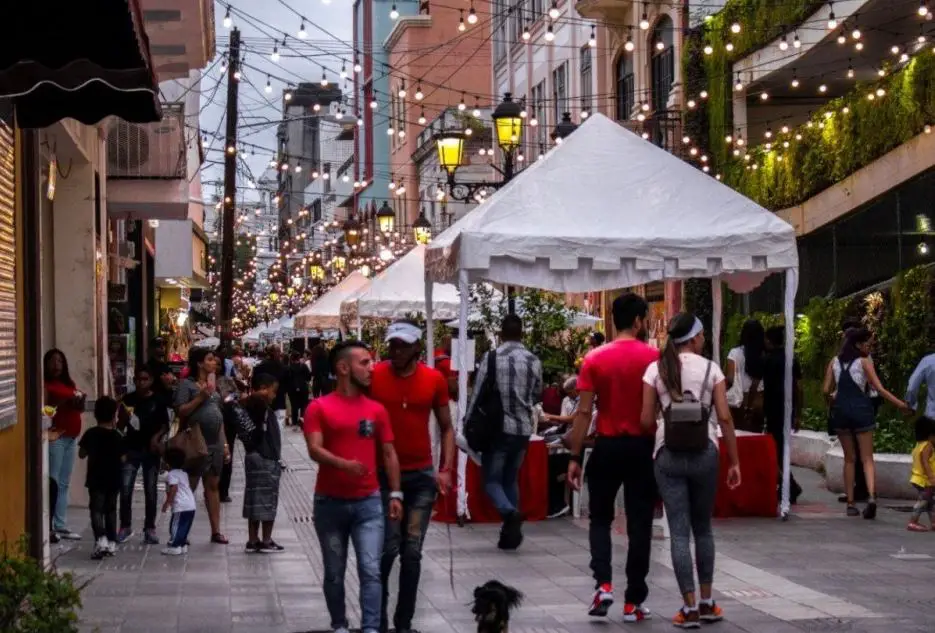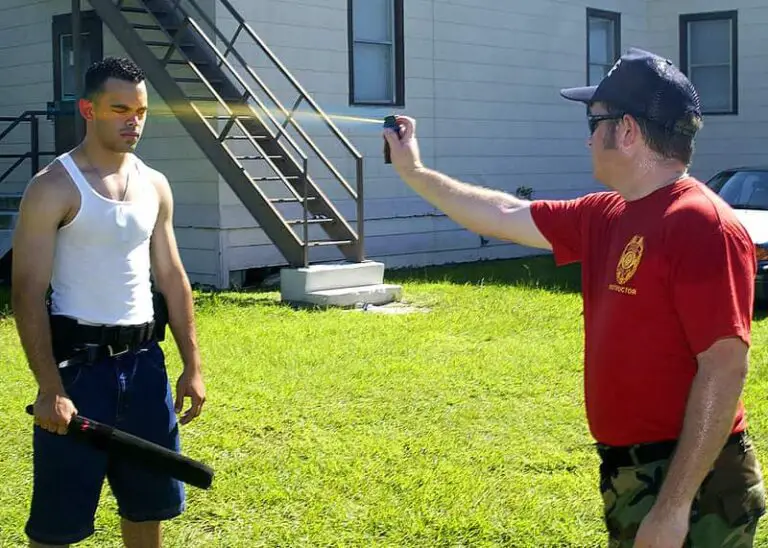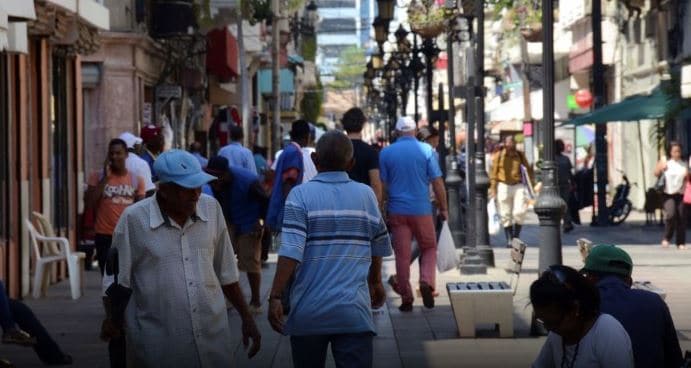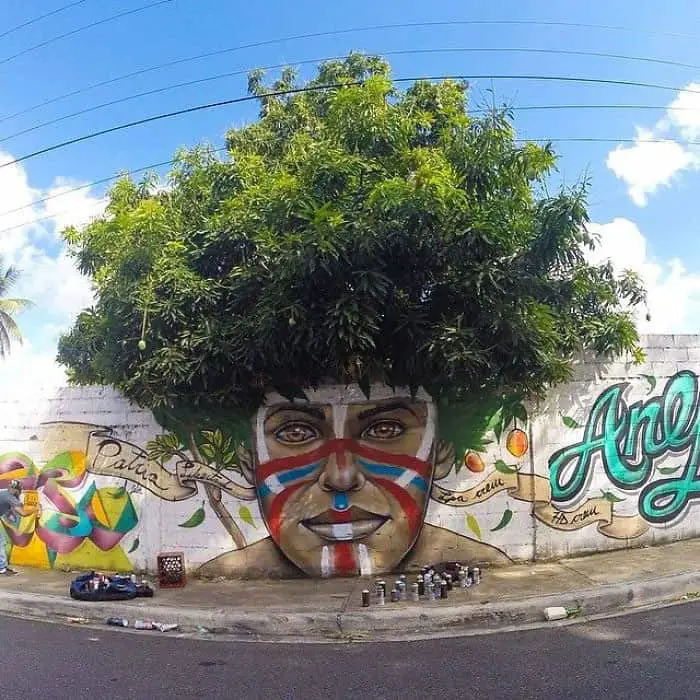7 Unwritten Social Rules In The Dominican Republic

In the Dominican Republic, as in all parts of the world, there are rules of behavior, not written or established, but which must be respected or recognized.
Many of these behaviors or practices are part of the idiosyncrasy of the Dominicans and others have been customs developed over time and engraved in the minds of people in the Dominican Republic as an imprint on a concrete floor.
In the Dominican Republic, people expect you to act and behave in a certain way depending on the situation, it is very possible that they evaluate your origin and social class and according to that they could classify and treat you.
What are these unwritten rules of behavior in the Dominican Republic? Here are 7 examples.
Contents
1- Leaving coins as a tip
In some commercial establishments in the Dominican Republic, where services are provided, mostly fast food or street food restaurants when you pay with bills, if they bring you the return of the payment in a small container, you have to leave the coins as a tip.
If you do not leave the coins you will be seen as a bad customer, a greedy person and possibly they will remember your face when you return to the place, leaving coins as a tip is a good habit, it is not mandatory to leave bills as a tip, although of course, they are well accepted.
2- The Guacanagarix complex
People in the Dominican Republic tend to have the perception that everything foreign is better than local and I’m not just talking about products, I’m also talking about people.
A foreigner in the Dominican Republic is better treated and valued than a local, if both compete for a job the foreigner will have the advantage because “he is smarter” or “he is better prepared”, but this is often a wrong perception.
This Dominican phenomenon is called “the Guanagarix complex”, Guacanagarix was an indigenous chieftain of the island who allied himself with the Spanish when Christopher Columbus made his first arrival to the new world.
3- Owning an SUV is a symbol of status and wealth
This is something that nobody mentions but that everybody perceives in the Dominican Republic, having a “big car” makes you a person of status and wealth.
The Dominican generally calls “Jeepeta” to the SUVs, even though there are many potholes in the streets, buying a Jeepeta is a symbol of great economic progress in the Dominican society.
The first thing that any Dominican who has gone from a phase of poverty to having a lot of money does is to buy a Jeepeta.
4- Don’t call middle-aged people by their first name
In the Dominican Republic, it is a sign of disrespect to call an elderly or middle-aged person by their first name, especially if it is a young person who mentions it.
Middle-aged people, before mentioning their name, should be called sir, don or dona, in most cases, it is not even necessary to mention the name.
Older people in the Dominican Republic are treated with much respect and importance, these people should be treated with much attention by young people, this is something taught since childhood in all the towns of the Dominican Republic.
5- Everyone has a nickname
Nicknames occupy a special part of the Dominican cultural baggage, right next to merengue, baseball, and rice. Everyone knows of a person who has a nickname and sometimes is known more by their nickname than by their real name.
In the Dominican Republic, everyone has a nickname, generally, they are creative names that have to do with some physical quality of the person or some abbreviation of the original name.
Some people may be called ” skinny” or ” little wiry” in case they are very thin, this is not done with the intention of offense, rather it is done with humor, many Dominicans also take the mockery as something normal.
Other times, they are strange names, out of common experiences, the nicknames are always familiar names that are used by people you trust.
If a Dominican takes you into his confidence and suddenly calls you by a nickname, try to take it with humor, don’t take it personally, we are used to that.
6- Small talk is normal and commonplace
Dominicans love to talk, anything can be a topic of conversation, it doesn’t matter if they don’t know you, small talk can come up at any time.
This is something very normal in the Dominican Republic, and in most cases, it doesn’t matter if you keep quiet or just nod your head, people will keep trying to make small talk with you by commenting on any trivial situation around you.
This situation is so evident and in many cases funny, for example, whenever I get on a “moto concho” (public transportation by motorcycle), the driver always tries to make casual conversation with me while driving, even though nothing can be heard because of the speed, wind and noise of the environment.
7-“Going now” or “doing it now” means something else
In English, it has a different meaning, but in Spanish, when a Dominican says “voy ahora” or “lo hare ahora”, it really means the opposite, that he/she will go later or do it later.
If you know any Spanish, don’t take it literally when a Dominican commits to you to do something right away, what he is really saying is that he will do it later.
In the Dominican Republic there is what is called “street justice”, if a thief is caught by the community or a group of people, he will be beaten mercilessly.
In some public institutions such as schools and state institutions, the country’s flag is hanging outside near the sidewalk, if at any time you are walking on the sidewalk and they are raising or lowering the flag, you must stop until the process is finished, if you continue walking this could be considered as a serious offense.
This also applies to Catholic churches, most Dominicans are Catholic, and when they pass in front of a Catholic church they make the sign of the cross, this is a tradition that has been lost over time.
Another rule in public transportation, that if you are a tourist you will probably never have to do because it is something that only locals do, is that when using public transportation, mainly cars, four people should sit in the back very tightly, the third person to get in, should sit on the edge of the seat so that the other three can fit in well, this is an unwritten rule.






